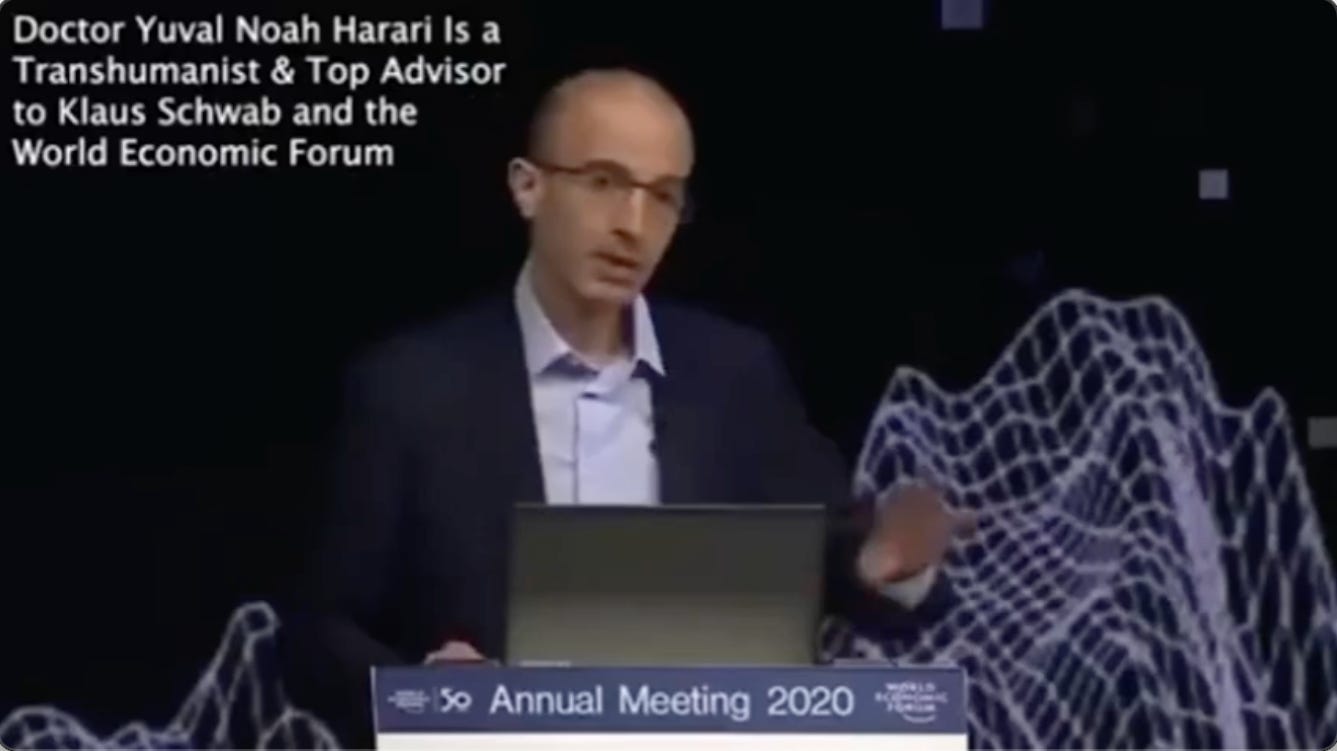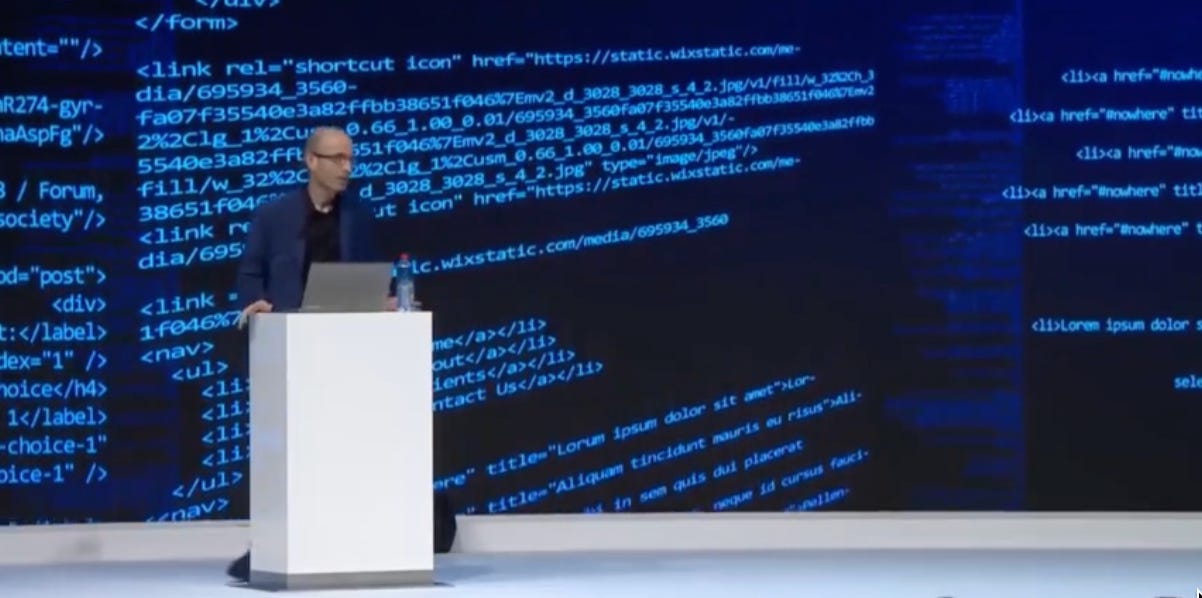WEF on outdoing the Gestapo and KGB
Data might enable human elites to do something even more radical than just build digital dictatorships.
https://rumble.com/vvljx2-top-advisor-to-klaus-schwab-summarizes-the-future-of-transhumanism.html
Dr. Yuval Noah Harari
Transhumanist and top advisor to Klaus Schwab and the World Economic Forum (WEF)
“History began when humans invented gods, and will end when humans become gods”
WEF 2020
[00:00] Now in the past, many tyrants and governments wanted to do it, but nobody understood biology well enough. And nobody had enough computing power and data to hack millions of people. Neither the Gestapo nor the KGB could do it. But soon, at least some corporations and governments will be able to systematically hack all the people.
We humans should get used to the idea that we are no longer mysterious souls. We are now hackable animals.
B × C × D = AHH
Biological knowldge × Computing power × Data = Ability to Hack Humans
WEF 2018
[00:39] Data might enable human elites to do something even more radical than just build digital dictatorships.
By hacking organisms, elites may gain the power to re-engineer the future of life itself. Because once you can hack something you can usually also engineer it.
And if indeed we succeed in hacking and engineering life, this will be not just the greatest revolution in the history of humanity, this will be the greatest revolution in biology since the very beginning of life 4 billion years ago.
For 4 billion years, nothing fundamental changed in the basic rules of the game of life. All of life, for 4 billion years - dinosaurs, amoebas, tomatoes, humans - all of life was subject to the laws of natural selection, and to the laws of organic biochemistry.
But this is now about to change. Science is replacing evolution by natural selection with evolution by intelligent design. Not the intelligent design of some God above the clouds, but OUR intelligent design. And the intelligent design of our clouds - the IBM cloud, the Microsoft cloud. These are the new driving forces of evolution.
And at the same time, science may enable life, after being confined, for 4 billion years, to the limited realm of organic compounds, science may enable life to break out into the inorganic realm.
So after 4 billion years of organic life, shaped by natural selection, we are entering the era of inorganic life shaped by intelligent design.
Regulation (unknown)
[02:48] So does the data about my DNA, my brain, my body, my life - does it belong to me, or to some corporation, or to the government, or perhaps to the human collective.
Interview
[03:02] Humans are now hackable animals. You know the whole idea that humans have this soul, or spirit, and they have freewill, and nobody knows what’s happening inside me, so whatever I choose - whether in the election or whether in the supermarket, this is my freewill - that’s over.
Today we have the technology to hack human beings on a massive scale.
When everything is being digitalized, everything is being monitored, in this time of crisis you have to follow science.
It’s often said you should never allow a good crisis to go to waste, because a crisis is an opportunity to also do good reforms that in normal times people will never agree to, but in a crisis you see you have no chance, so let’s do it.
Vaccine will help us of course, it will make things more manageable.
Video
[04:02] Surveillance. People could look back in a 100 years and identify the coronavirus epidemic as the moment when a new regime of surveillance took over, especially surveillance under the skin, which I think is maybe the most important development of the 21st century, is this ability to hack human beings to go under the skin, collect biometric data, analyze it and understand people better than they understand themselves. This, I believe, is maybe the most important event of the 21st century
Klaus Schwab
Founder, World Economic Forum (WEF)
WEF with Bidens in audience
[04:41] One of the features of the 4th Industrial Revolution is that it doesn’t change what we are doing but it changes us.
Interview by Charlie Rose
[04:50] The difference of the 4th Industrial Revolution is it doesn’t change what you are doing, it changes you. If you take genetic editing, just as an example, it’s you who are changed, and of course this has a big impact on your identity.
Charlie Rose: And of certain kinds of possibilities that have to be careful about, you know, when you began to do that kind of gene editing some people worry that you are changing what it means to be human.
That’s the problem. Of course. The new industrial revolution offers us many opportunities that it raises manifold questions on the ethical, but even legal implications and we have to be prepared for it. And that’s what we want to do in Davos next year.
Charlie Rose: Talks about technology and the ways it can be deployed that contribute to growth rather than exacerbate unemployment. How will that implement?
It’s a big question mark because there is a fear that technology, robots, just to take one [yeah, you gain more productivity from machines] exactly and it replaces maybe the workforce or jobs faster than we can replace them with a new job - not everybody can be a robot polisher. There will be new jobs.
¯\_(ツ)_/¯
Oh, and there’s more…


